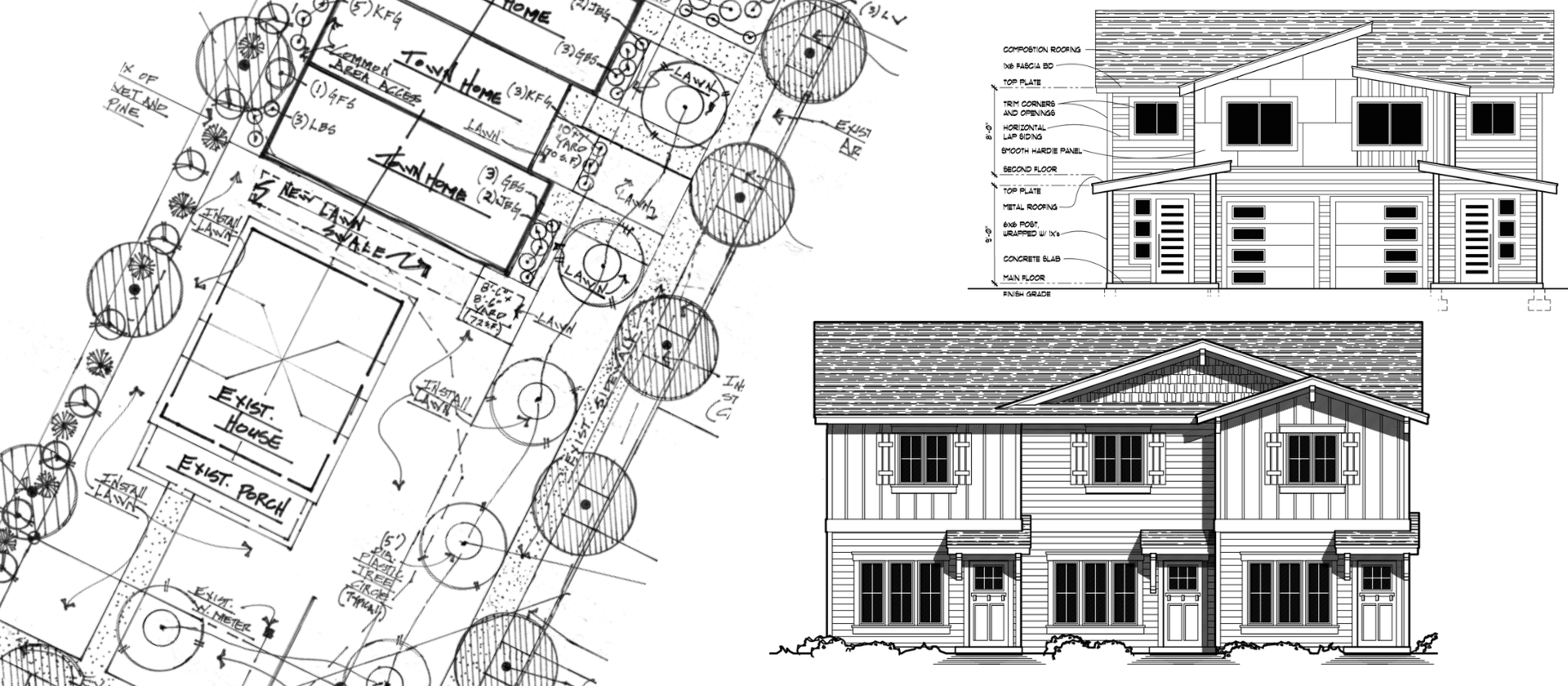Middle Housing Support Team

The Middle Housing Support Team
The Middle Housing Support Team is tasked with assisting small developers in navigating the development process to create Middle Housing on infill lots. Middle Housing projects can oftentimes trigger a variety of requirements from various City departments. We are here to help you navigate this process to help make your project a success.
How can we help?
The team is here to help you find a successful path to constructing Middle Housing. We can:
- Serve as the point of contact to help minimize the number of interactions with City staff.
- Help you understand the variety of housing incentive programs your project may qualify for.
- Brainstorm project alternatives or identify potential solutions to unique or difficult developments.
What types of projects can we help with?
We can help you with Middle Housing projects. Middle Housing is construction that fits in between single unit detached homes and large multi-family buildings, such as duplexes to sixplexes, cottage housing, stacked flats, and townhouses. Projects can be anywhere in the City of Spokane, but we prioritize aiding projects on infill or underutilized sites. If your project does not fit neatly into these guidelines and you would like help, please feel free to reach out to us.
Frequently Asked Questions
What is Missing Middle Housing?
Middle Housing is a term used to describe lower-intensity residential development that fills the gap between single unit detached homes and larger multi-family apartments. Typically defined as between 2 and 6 units per site, Middle Housing includes duplexes, triplexes, fourplexes, and other housing types like courtyard apartments, stacked flats, and other low-intensity multi-unit developments.
Middle Housing is "missing" because the development of these housing types has often been restricted throughout the country starting in the mid-1900s. For example, in 2021, the City of Spokane issued permits for only seven 4-unit developments and no 3-unit developments at all. Compare that to 380 houses and more than 800 apartment units permitted in the same year and you can see how these housing types are largely missing.
What has the City done to encourage Middle Housing?
In July 2021, the City adopted its Housing Action Plan (HAP) to focus on implementation of housing policies and goals. The HAP built upon past initiatives and community discussions to identify actions that the City can pursue to encourage more housing options and create more homes for more people. Implementing strategies from the HAP and a declared housing emergency, interim zoning regulations modify permitted housing types in the City’s residential zones to accelerate construction of more housing. The Building Opportunity and Choices for All interim ordinance was passed July 18, 2022 and allowed up to four units on all residential lots and adjusted development standards to make Middle Housing construction more feasible. The Building Opportunity for Housing project was then initiated to make permanent Comprehensive Plan and development code amendments to allow for and encourage these now missing housing types to increase housing choices and diversity throughout Spokane.
What is the difference between Abbreviated Review and Full Route Review?
Previously referred to as Residential and Commercial review, Abbreviated Review encompasses single family homes, additions, interior remodeling, fencing and demolition of single unit, duplex family houses and/or accessory buildings. Full Route Review review is development more intensive than those listed above and generally trigger more Building, Fire, and City code requirements.
Contact Information
City of Spokane
Department of Planning Services
808 W. Spokane Falls Blvd.
Spokane, WA 99201
MiddleHousing@spokanecity.org
509.625.6500
